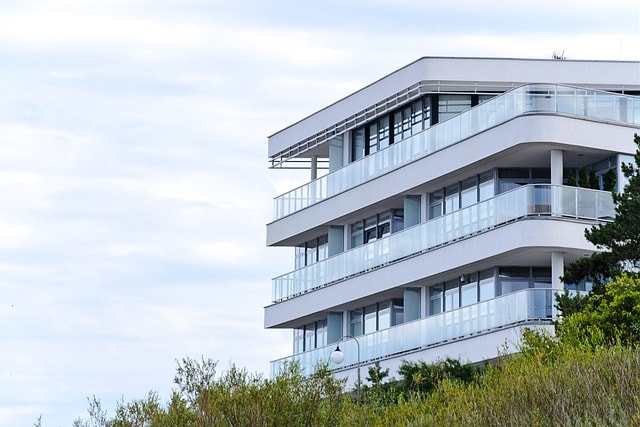Should you choose a condo or home? It depends on your lifestyle, budget, and how much maintenance you’re willing to handle. This article will compare the costs, community feel, and responsibilities of each to help you decide.
Table of Contents
Key Takeaways
Condos come with shared amenities and lower maintenance, making them great for first-time buyers, downsizers, and frequent travelers who want convenience and community living.
Homes offer more privacy and control, perfect for growing families, privacy seekers, and DIY enthusiasts who want more space, autonomy, and the ability to personalize their properties.
Financially, condos have lower upfront costs and insurance but come with HOA fees, while homes involve higher purchase prices and more extensive maintenance responsibilities, impacting both ongoing expenses and lifestyle.
Understanding the Basics: Condo vs. Home

Houses and condominiums, or condos for short, are the two main types of dwellings often considered when purchasing a home. Condos are smaller units within larger multi-family buildings and come with shared ownership of common areas, while houses are standalone structures with independent ownership of both the property and the land it sits on. This fundamental difference sets the stage for distinct lifestyles and responsibilities.
Condos generally come with shared amenities like pools and gyms, maintained by condo associations, making them appealing for those who appreciate community living. On the other hand, homes offer more privacy and control, as homeowners are responsible for their entire property, including maintenance and modifications. This means that your choice between a condo or a house will significantly impact your daily life and responsibilities.
We shall now elucidate the defining characteristics of condos and houses.
Defining a Condo
A condominium, or condo, is a residential unit inside a larger, multi-unit building or condo complex with shared ownership and responsibility for community spaces. Condos can take the form of apartments or row houses, offering varied layouts within shared buildings. This setup often includes amenities like swimming pools, gyms, and parking garages maintained by the condo association.
Condos tend to foster a sense of community living, with shared spaces providing opportunities for social interactions within the condo community. While condo owners are responsible for the interior of their units, the exterior and common areas are maintained by the condo association, easing the burden of extensive maintenance.
Defining a Home
A house, also known as a single-family home, is a free standing house. It has four outer walls that are not connected to any other residential structure. This type of single family house is typically situated on its own plot of land, offering more privacy and space compared to condos. Homeowners have full control over their property, including the land, any additional structures, and landscaping.
Buying a house involves full responsibility for all maintenance and modifications, providing greater autonomy but also requiring more effort and investment. Homes vary widely in style and size, from modest bungalows to multi-story mansions, allowing for a broad range of customization.
Who Should Consider Buying a Condo?

For specific types of buyers like first-time homebuyers, downsizers, and frequent travelers, condos may be a more suitable option. The unique advantages offered by condos make them an appealing option for these buyers. Condos tend to have lower maintenance requirements compared to single-family homes, appealing to buyers who seek less upkeep responsibility.
Additionally, individuals who prefer urban living may find condos more suitable due to their common presence in city areas. We shall now examine the specific groups who might be particularly attracted to condo ownership.
First-Time Homebuyers
First-time homebuyers may find condos appealing due to their typically lower costs compared to single-family homes. Condos generally have a lower purchase price, making them more accessible to those entering the housing market for the first time. Furthermore, the reduced insurance costs for condos, which only cover the interior of the unit, can be a significant financial advantage for new buyers.
In addition to financial benefits, the convenience of having maintenance handled by the condo association can be a huge relief for first-time buyers who might not be ready to take on the full responsibilities of homeownership. This makes buying a condo a practical stepping stone into the world of real estate.
Downsizers
Older individuals looking to manage a smaller living space might consider condos for their low maintenance. Downsizers often benefit from the smaller living space in condos, which can be easier to manage and maintain.
Additionally, condos typically have lower property taxes compared to single-family homes, helping to reduce living expenses.
Frequent Travelers
Condos are suitable for individuals who:
Travel often
Prefer a centrally located, low-maintenance residence
Want a lock-and-leave lifestyle, meaning they don’t have to worry about yard work or exterior upkeep while they are away
Value the security features and maintenance provided by the condo association
Are frequent travelers and want peace of mind
Condos offer all of these benefits, making them an attractive option for frequent travelers.
Who Should Consider Buying a Home?

Contrastingly, single-family homes cater to those who prioritize space, privacy, or enjoy personalizing their living environment. Owning a traditional home provides the benefit of larger living spaces and lot sizes, which can be perfect for those desiring more room for family and activities.
Homes typically offer more privacy due to the absence of shared walls with neighbors. Additionally, the freedom to perform modifications and renovations makes homes an appealing choice for those who enjoy DIY projects.
Growing Families
Single-family homes provide the following benefits for growing families:
More space, including larger yards and more living area for children to play
Outdoor space for family activities and children to play
More bedrooms and living space to accommodate the needs of a growing family.
It’s necessary to evaluate your space requirements, especially if lifestyle changes like a new baby or an elderly relative moving in are on the horizon, while considering a home. This flexibility makes homes a great long-term investment for families planning for the future.
Privacy Seekers
Traditional homes offer:
Independence and privacy, free from shared walls and infrequent sharing of common areas with neighbors
A quieter living environment with reduced noise from neighbors compared to condos
A private yard, further enhancing the sense of personal space and privacy.
For those who value peace and tranquility, living in a detached house, specifically single-family homes, makes them an ideal choice. The ability to enjoy your property without worrying about the noise or activities of neighbors is a significant advantage of homeownership.
DIY Enthusiasts
Homeowners have the freedom to perform renovations and modifications without needing approval from a condo board or HOA. This allows for complete customization, making it ideal for those who enjoy hands-on projects and personalizing their living space. Single-family homes offer more flexibility for homeowners to customize their living spaces.
There are fewer restrictions on modifying the exterior and interior of a home compared to condos. This freedom is perfect for DIY enthusiasts who want to make their home truly their own, adding personal touches and improvements as they see fit.
Financial Considerations: Costs of Condo vs. Home

In terms of financial considerations, condos and homes exhibit distinct cost structures. Condos are typically less expensive than houses owing to their smaller square footage and lower purchase prices. However, condo owners are responsible for paying HOA fees, which cover exterior maintenance and amenities.
Homeownership generally involves a larger financial commitment due to higher purchase prices and the need for personal upkeep and maintenance. Additionally, homeowners need to pay for homeowner’s insurance covering the entire property, adding to the overall cost.
Upfront Costs
Condos typically have lower upfront costs than houses. The initial purchase price for a condo is generally lower, making the down payment more manageable for buyers.
In contrast, houses generally have a higher initial purchase price, resulting in a higher down payment requirement.
Ongoing Expenses
Monthly mortgage payments tend to be higher for houses compared to condos. Property taxes for homes are often more expensive than those for condos due to higher property values. In fact, the monthly mortgage payment for a house is generally more expensive due in part to higher property taxes and the need for extensive maintenance, such as landscaping and roof repairs.
House insurance is generally more expensive as it covers the entire property, whereas condo insurance typically covers only the unit’s interior. This means that while condos are often cheaper to insure, homeowners take on additional costs to protect their property fully.
HOA Fees and Monthly Costs
HOA fees in condos cover shared amenities and exterior maintenance, adding to the monthly costs for owners. These fees can vary significantly based on location, square footage, and specific community amenities. While these fees ensure that common areas and facilities are well-maintained, they can become a significant monthly expense for condo owners.
In contrast, houses do not have HOA fees, but owners must cover all individual maintenance expenses. This includes costs for landscaping, repairs, and other upkeep tasks that condo owners typically avoid through their HOA fees.
Lifestyle Impacts: Community Living vs. Private Living
The choice between a condo and a traditional home markedly influences daily life, social interactions, and community involvement. Condos often have shared spaces like gyms and swimming pools, which can facilitate social interactions among residents. This can foster a sense of community and provide an opportunity to make new friends and live among like-minded individuals.
On the other hand, living in a traditional home provides:
a more solitary environment
less frequent interactions with neighbors compared to condos
greater privacy by minimizing shared spaces and increasing distance between neighbors
a more secluded living environment
Community Living in Condos
Condos are commonly located in densely populated city areas, providing proximity to local amenities. They offer amenities like swimming pools or fitness centers that first-time homebuyers might not afford in a single-family home. Community spaces in condos such as landscaped areas and kids’ play areas encourage social interactions among residents.
The physical settings of communal areas, like seating arrangements and green spaces, significantly influence the level of social interactions in condos. This sense of community living can be a major draw for those who enjoy socializing and being part of a vibrant community.
Private Living in Homes
Traditional homes provide:
More personal space
Quieter living environment
Peaceful living environment
Absence of shared walls
Presence of a private yard
These features allow homeowners to enjoy their property without frequent interactions with neighbors.
Maintenance Responsibilities: Condo vs. Home
The maintenance obligations vary considerably between owning a condo and a home. For condo owners, many maintenance tasks are handled by the Homeowners Association (HOA), while homeowners generally take care of most maintenance themselves. This difference can significantly impact your time and financial commitments.
In condo communities, the HOA is typically responsible for the maintenance and repair of common elements such as roads, sidewalks, and shared amenities. This can ease the burden on condo owners, who only need to focus on the upkeep of their unit’s interior. Conversely, homeowners must manage all aspects of their property’s maintenance, from the roof to the yard, which can be both time-consuming and costly.
Exterior Maintenance
Condo living involves reduced maintenance responsibilities as the association handles:
Exterior upkeep
Common areas
Landscaping
Roof repairs
Snow removal
General upkeep of the building’s exterior
This can be a major advantage for those who prefer not to deal with these responsibilities.
Homeowners, on the other hand, are responsible for all exterior maintenance tasks on their property. This includes everything from lawn care and snow removal to repairs on the roof and exterior walls. While this offers greater control over the property’s appearance and condition, it also requires a significant investment of time and money.
Interior Upkeep
Both condo and homeowners are responsible for the interior upkeep of their properties. Condo owners must handle all repairs and maintenance tasks within their individual units, including:
fixing walls
replacing windows
floors
appliances
plumbing
electrical systems
Similarly, homeowners need to manage all interior upkeep tasks, which can range from minor repairs to major renovations.
Shared Spaces
HOA fees cover maintenance for shared spaces like lobbies, gyms, and pools in condos. The HOA is responsible for regular inspections, budget allocations, and necessary repairs to ensure these common areas are well-maintained. This shared responsibility can help maintain the property’s value and provide a pleasant living environment for all residents.
Rules and Regulations: Navigating HOA and Condo Board Policies
Both condo and home buyers must comprehend the rules and regulations established by HOAs and condo boards. HOA rules or covenants are policies implemented within a community to preserve property values and regulate resident behavior. These rules must align with federal and state laws, and rules that contradict these laws are unenforceable.
HOA rules and regulations are designed to preserve home values and maintain community standards. Homeowners become responsible for following all HOA rules upon purchasing a home in a community association. Violating HOA rules can result in fines, and unresolved penalties might lead to liens on properties. Understanding the process for resolving conflicts with the HOA can help homeowners manage disputes and avoid penalties.
HOA Rules in Condos
Condos often have stricter HOA rules compared to houses. Some common HOA rules in condos include:
Restrictions on noise levels
Restrictions on pet sizes
Restrictions on parking
Restrictions on subletting
Additionally, condo HOAs might have specific rules regarding the installation of satellite dishes, such as only allowing dishes that exceed one meter in diameter, due to the Over-the-Air Reception Devices (OTARD) Rule.
These rules ensure that the community remains orderly and that property values are maintained.
HOA Rules in Single Family Homes
Single-family home HOAs might require community voting to enact new rules or amendments, making non-approved rules unenforceable. These HOAs may impose restrictions on short-term rentals and trash disposal practices to maintain the community’s standards. However, they cannot impose fines without a valid cause, as they are governed by federal and state laws.
Navigating Restrictions
Navigating restrictions involves understanding the governing documents and legal rights. Residents can challenge unenforceable HOA rules in state or federal court, especially if they violate the Fair Housing Act.
Consulting with an attorney familiar with HOA laws can help homeowners when facing legal action from their association.
Are You Ready to Buy? Assessing Financial and Personal Readiness
Before finalizing a property purchase, it is imperative to gauge your financial and personal readiness. Understanding your current financial situation, including debt levels and savings, is the first step. Your debt-to-income (DTI) ratio is a key indicator of whether you can afford a house, with lenders often preferring a front-end DTI ratio of no more than 28%.
Consider your lifestyle preferences when deciding between a condo and a house. Condos often appeal for their convenience and reduced maintenance, whereas houses offer more space and freedom. Additional factors to consider include location, taxes, available amenities, and the condition of the property.
If you’re ready to buy a condo or a house, get a real estate agent who is an expert in your local market and dedicated to finding the perfect home for you at the perfect price.
Financial Preparedness
Assessing financial readiness involves reviewing debt levels, emergency funds, and down payment savings. Understand your debt levels and ensure you have a 20% down payment saved up before buying a home. Additionally, consider your emergency savings and ensure they cover 3–6 months of expenses before making a purchase.
Evaluate your long-term income stability and potential future expenses when considering a home purchase. Factor in how long you plan to stay in the home and any potential school changes for children. This thorough assessment can help ensure that buying a home is a sound financial decision.
Lifestyle Compatibility
Choosing between a condo and a home should be based on your lifestyle needs and future plans. A condo might be a better fit for someone with an urban lifestyle who enjoys being close to amenities and prefers less maintenance work. Conversely, a home may be more suitable for those who prioritize privacy, space, and more control over their property.
Ultimately, consider how a condo or a home aligns with your long-term lifestyle aspirations, whether in terms of community living or private space. This reflection can help you make a choice that complements your personal and professional goals.
Check out What Should You Consider When Deciding Between a Condo vs. House?
Summary
In summary, the decision between a condo and a home depends on various factors, including your financial situation, lifestyle preferences, and long-term goals. Condos offer lower upfront costs, reduced maintenance responsibilities, and a sense of community, making them ideal for first-time homebuyers, downsizers, and frequent travelers.
On the other hand, homes provide more space, privacy, and customization freedom, making them suitable for growing families, privacy seekers, and DIY enthusiasts. By carefully considering these aspects, you can make an informed decision that aligns with your needs and aspirations. Remember, whether you choose a condo or a home, the most important thing is that it feels right for you.
Frequently Asked Questions
What are the main differences between a condo and a home?
Condos are smaller units within larger buildings with shared ownership of common areas, while homes are standalone structures with full ownership of the property and land. So, the main difference lies in the ownership and size of the property.
Who should consider buying a condo?
If you’re a first-time homebuyer, downsizer, or frequent traveler looking for lower costs and maintenance, buying a condo could be a great option.
What are the financial considerations when choosing between a condo and a home?
When choosing between a condo and a home, consider that condos have lower upfront costs and HOA fees, while homes have higher purchase prices and ongoing expenses like property taxes and individual maintenance. So, it’s important to weigh these factors based on your financial situation and long-term plans.
How do lifestyle impacts differ between living in a condo and a home?
Living in a condo offers a sense of community and shared amenities, while living in a home provides more privacy and personal outdoor spaces. Ultimately, it depends on your preference and lifestyle.
What are the maintenance responsibilities for condo and homeowners?
In a condominium, the association takes care of exterior maintenance and shared spaces, while homeowners are responsible for all maintenance tasks on their property, both inside and out.









